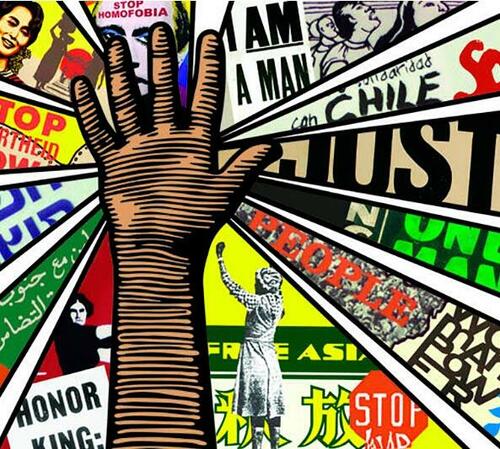“We Have A Captive Audience”: Boston University To Require Students Take Social Justice Writing Courses
Boston University recently made a new announcement that has rekindled concerns over the rising orthodoxy in our institutions of higher education. The University issued new guidelines for its mandatory writing program that will require all students to write papers with a “social justice emphasis” as a condition for graduation. The key faculty organizers celebrated the new policy and the hiring of non-white instructors as guaranteeing social justice results by making students a “captive audience” with no choice in the matter.
Student will now have to choose among such choices as “Linguistic Justice…Who Cares?: Domestic Labor and the Commodification of Care,” “Asians Are People of Color: Exploring the Controversy and Identity Politics,” “Deconstructing Narratives: Stories of Race and Racism in American Cultural Memory” and “Writing Environmental Justice.”
Gwen Kordonowy, the Writing Program’s associate director, said that the problem in the past was that students had a choice and some did not want to be forced into writing for social justice issues. Instructors and classes could be avoided. Now, they have solved the problem by removing all choice.
She heralded the hiring of non-white faculty to teach the social justice courses, using the first-year requirement to “reach every student at BU.”
With that, she explained, “we have a captive audience. We never worry about enrollment.”
Writing Program Director Sarah Hardy said that the “cluster hiring” of minority faculty and the mandatory course requirements are meant to finally end the “predominance of white faculty in academia” by limiting the choices of students.
The BU announcement includes a statement from instructor Swati Rani that she will be teaching students to apply the “language around anti-racism” and emphasized that “all of my students are required to develop a voice of advocacy in their final papers and projects that are directly connected to their intersectional lives at BU.”
There is every reason to celebrate classes that add different perspectives and subjects to the curriculum. It is the mandatory element that is troubling if students will be required to write in favor of approved social justice causes.
What happens to students in this “captive audience” who do not support social justice causes? These are subjects that touch on deep religious, social, and political values in our society.
While many of us have objected to the orthodoxy and viewpoint intolerance on our campuses, there remains some element of choice at most schools that allows students to avoid such classes. The BU program raises the question of whether political orthodoxy among faculty becomes political indoctrination through mandatory graduation requirements.
It is certainly true that students are a captive audience in the sense of having to meet basic requirements for graduation. However, most universities have guaranteed a degree of intellectual and curricular diversity among their course offerings. Indeed, some like University of Chicago focused on the “core curriculum” to lay a uniform foundation in classic subject matters while allowing students to tailor their courses to their interests after the first-year. The thrust was to teach analytical and writing skills separate from political or cultural viewpoints. BU seems to be erasing the distinction between skills and viewpoint development.
Rani explains that in her course “we call out performative wokeness culture by asking ourselves what solutions we have to problems of injustice.” What if a student does not believe that there is “linguistic injustice” or rejects the cited “problems of injustice” in these courses? What if they reject not just “performative” but any form of wokeness?
Once again, some of these courses seem very interesting and I expect would be a draw for many students. However, by making these courses mandatory, BU could be making viewpoint compliance a condition for graduation.
For some of us, it was the reference to students as captives to these courses that was the most jarring.
The university has an obligation, in my view, to assure students and faculty that students are not reduced to mere captives to a type of viewpoint indoctrination. That can be achieved by guaranteeing the students are not being graded on their ability to mouth the social justice priorities of instructors.
Tyler Durden
Tue, 05/30/2023 – 15:25
via ZeroHedge News https://ift.tt/nXmMpNu Tyler Durden
